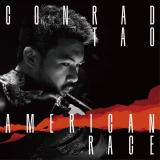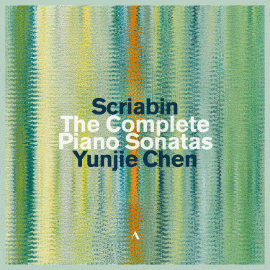 American Rage; Frederic Rzewski: Which Side Are You On + Winnsboro Cotton Mill Blues; Aaron Copland: Piano Sonata; Julia Wolfe: Compassion; Conrad Tao, Klavier; 1 CD Warner Classics 9029535477; Aufnahme 07/2018, Veröffentlichung 25/10/2019 (59') - Rezension von Remy Franck
American Rage; Frederic Rzewski: Which Side Are You On + Winnsboro Cotton Mill Blues; Aaron Copland: Piano Sonata; Julia Wolfe: Compassion; Conrad Tao, Klavier; 1 CD Warner Classics 9029535477; Aufnahme 07/2018, Veröffentlichung 25/10/2019 (59') - Rezension von Remy Franck
Der 25 Jahre alte amerikanische Conrad Tao hat ein Album zum Thema American Rage zusammengestellt, mit Protestmusik als Reflektion der Revolte der Arbeiterklasse in den Dreißigerjahren über 9/11 bis hin zu der Kluft, die der Trumpism in die USA gegraben hat.
Frederic Rzewskis ‘Which Side Are You On?’ basiert auf einem Protestlied von Florence Reece (1900–1986), einer amerikanischen Sozialaktivistin, Dichterin und Volksliedautorin. ‘Auf welcher Seite stehst du?’ ist ihr bekanntester Song, den sie 1931 während eines Streiks in Harlan County auf die Rückseite eines Kalenders schrieb. Der 1930 geborene Frederic Rzewski gilt ebenfalls als ein sozialpolitisch aktiver Komponist und Pianist, der, weil er ein brillanter Virtuose ist, seine Wut gut in Musik ausdrücken kann. Conrad Tao spielt die Kompositen brillant und mit kraftvoll-beißendem Ausdruck.
Aaron Coplands Klaviersonate kam 1941 in Buenos Aires zur Uraufführung. Der Komponist, den man einen ‘schwulen, sozialistischen Juden’ genannt hat, setzte sich auch gegen Ungerechtigkeiten ein, und Conrad Tao sieht in der Sonate eine trauervolle Elegie auf alles, was verloren ging. Der junge Pianist spielt sie mit großer Ausdruckskonzentration und benutzt die Stimmungsvielfalt und das fein abgestimmte Gleichgewicht von Ernst und trockenem Witz als Hoffnung auf mehr Menschlichkeit und Gerechtigkeit.
Die Komponistin Julia Wolfe lebt in Manhattan, nur wenige Blocks von der Stelle entfernt, wo die Twin Towers einmal standen. 9/11 und die Folgen erlebte sie quasi hautnah, und drückte ihre Empfindungen in dem etwa 7 Minuten langen Stück Compassion aus, das hämmernd beginnt, wie wenn jemand voller Verzweiflung mit beiden Fäusten gegen die Wand schlägt, und sich im selben Rhythmus erschöpft und abrupt aufhört.
Frederic Rzewskis Winnsboro Cotton Mill Blues ist ein Stück, in dem der Komponist das kontinuierliche Geräusch einer Baumwollmühle darstellt, und, wenn dieses endet, einen Blues mit Reminiszenzen des Maschinengeräuschs zu Gehör bringt. Conrad Tao gibt eine ungemein gut differenzierte, die sozialkritische Komponente in einer starken, packenden Interpretation verdeutlichend. Wut, auch hier!
25-year-old American Conrad Tao has put together an album on the theme of American Rage, from protest music reflecting the working class revolt of the 1930s, via 9/11 to the divide that Trumpism created in the United StatesFrederic Rzewski’s ‘Which Side Are You On?’ is based on a protest song by Florence Reece (1900-1986), an American social activist, poet and folk song writer. ‘Which side are you on?’ is her most famous song, written on the back of a calendar during a strike in Harlan County in 1931. Born in 1930, Frederic Rzewski is also considered a socio-politically active composer and pianist who, being a brilliant virtuoso, can express his anger well in music. Conrad Tao plays this piece brilliantly and with powerfully biting expression.Aaron Copland’s piano sonata premiered in Buenos Aires in 1941. The composer, who has been called a ‘gay, socialist Jew’, also fought injustice, and Conrad Tao sees the sonata as a mournful elegy for everything that has been lost. The young pianist plays it very expressively and uses the variety of moods and the finely tuned balance of seriousness and dry wit as hope for more humanity and justice.The composer Julia Wolfe lives in Manhattan, just a few blocks from where the Twin Towers once stood. She experienced 9/11 and the consequences almost up close, and expressed her feelings in the about 7 minutes long piece Compassion, which begins hammering, as if someone full of desperation hits with both fists against the wall and then shows exhaustion in the same rhythm, before the works abruptly ends.Frederic Rzewski’s Winnsboro Cotton Mill Blues is a piece in which the composer depicts the continuous sound of a cotton mill, and when this ends, he plays a blues with reminiscences of the machine’s noise. Fully concentrating socio-critical of this music, Conrad Tao gives an incredibly well differentiated and gripping performance. Rage, also here.





















